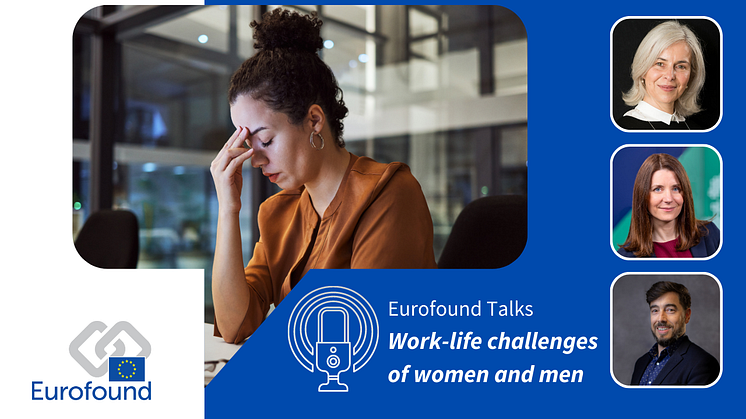
News -
Europe must focus on preventative measures when dealing with housing crisis
Focusing on prevention, and the strategic application of social support at the right time, is an important aspect of reducing evictions and ensuring citizens have affordable housing options in Europe. Europe’s green transition is also central to both improving the standard of housing and its affordability, as it can help reduce the cost of utility bills, but action must be taken to ensure that measures reach low-income groups.
Eurofound has just published a new episode of the Eurofound Talks podcast on housing. In the episode Mary McCaughey speaks with Eurofound Senior Research Manager Hans Dubois on the issues that feed into housing insecurity in Europe, and the actions that need to be taken to address them. Together, they analyse findings from Eurofound’s recent Unaffordable and inadequate housing in Europe report, which presents data from Eurofound’s Living, working and COVID-19 e-survey, European Union Statistics on Income and Living Conditions, and input from the Network of Eurofound Correspondents on various indicators of housing security and living conditions.
Eurofound’s research emphasises that it is essential for policymakers to consider groups in vulnerable situations in all tenures. For example, findings show that 46% of private rental market tenants feel some level of risk of leaving their home in the next three months because they can no longer afford it and in most of the countries where over half the population are homeowners without a mortgage, around one quarter are still at risk of poverty.
Hans and Mary also discuss the relative success of Housing First policies in keeping people out of homelessness and the need to scale these up across the EU. It is critical that such housing be independent, stable and truly unconditional on engagement with support services to ensure that access to housing is guaranteed.
Europe’s green transition is also discussed, they look at how this has considerable potential to help citizens and improve standards of living, but funds to improve the energy efficiency of homes need to reach low-income groups, protecting them from future energy price increases.
Eurofound research highlights that 28% of people in the EU face difficulties paying utility bills and this jumped to 36% for social tenants and homeowners without a mortgage in the bottom half of the income distribution – where many cannot maintain their homes at adequate temperature – underlining how current and future needs of inhabitants must be considered when improving housing adequacy. However, proportions are higher for private tenants (and homeowners with mortgages) in the bottom income half (both 40%), suggesting that social housing protects low-income tenants to some extent to such insecurities.
Listen to the episode for free on our dedicated page, or wherever you get your podcasts.
More information:
- Publication: Unaffordable and inadequate housing in Europe
- Blog: How to prevent a housing crisis




